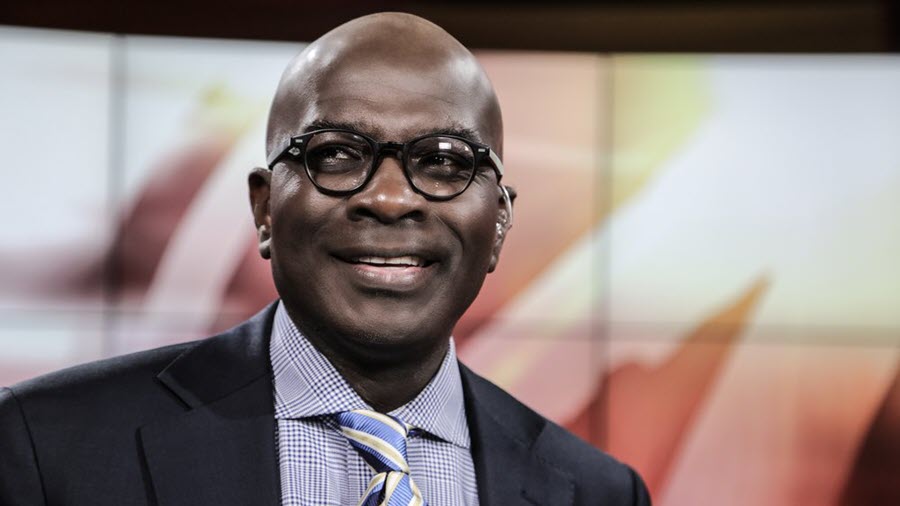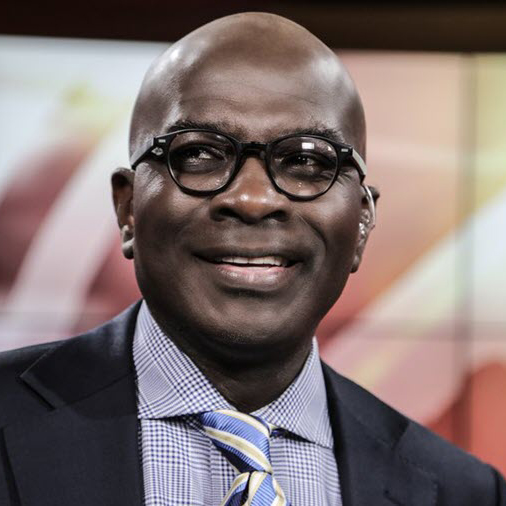Gigi Sohn’s Confirmation Would Undermine FCC Diversity, Inclusion Efforts
Station owner Armstrong Williams says nominee’s policies will hamper minority media growth

The smarter way to stay on top of broadcasting and cable industry. Sign up below
You are now subscribed
Your newsletter sign-up was successful
When I wonder about our country’s direction, I often think back to my family’s story. My father was a South Carolina farmer, and over the course of just a single generation, his son was able to graduate from the family farm and become a writer, public thinker, content creator, and owner of one of the country’s largest minority broadcast companies.
It’s become a bit of a cliché to say that such stories can “only happen in America” — but that’s because the idea rings powerfully true, for generation after generation. The Left persists in telling the public that systemic barriers in this country hold everyone back, but its narrative willfully ignores the only-in-America type stories like those of my family’s and so many others.
I was reminded of this when I learned that Gigi Sohn was being nominated by President Joe Biden to serve as one of five FCC commissioners. The reason for my concern: Sohn believes in and advocates for policies that would make stories like my own increasingly rare in our country. Her policy preferences would actively deter minority media ownership and depress the investment in broadcasting needed to elevate minority voices — and she should not be confirmed to the FCC.
Also: Gigi Sohn’s Years of Support for Inclusion Deserve Confirmation
My company, Howard Stirk Holdings (HSH), is one of only two African-American commercial television station licensee enterprises in the United States today. I have seen just how hard it is to grow and build HSH, and I do not want an FCC nominee to saddle the industry with unnecessary, harmful regulations.
Sohn’s positions would limit opportunities for minorities to thrive in the media industry. Sohn and the organization she co-founded and ran as CEO from 2001 to 2013, Public Knowledge, advocated restricting the growth of television and radio companies at all costs—even if it upends the hard-fought gains that minority content creators have made.
For instance, Public Knowledge opposes joint sales agreements that enable minority broadcasters to benefit from the better-resourced and more well-established advertising infrastructure of larger broadcasters. While at the FCC, Sohn worked to restrict “sidecars,” an arrangement that helps minority and up-and-coming broadcasters manage the significant costs of operating a station by sharing resources with larger companies.
The smarter way to stay on top of broadcasting and cable industry. Sign up below
When a chorus of content creators sounded the alarm on Sohn’s plan to allow Big Tech companies like Google to effectively steal minority content—by monetizing it without paying licensing fees—she simply ignored those concerns and forged ahead. In doing so, she added to the noxious history of minority labor bearing fruit for everyone other than the creators themselves. (Importantly, Sohn was only stopped in this effort when another FCC commissioner, Jessica Rosenworcel, took the time to understand the issue and wisely refused to support the plan, denying it the votes it needed to proceed.)
In both her policy positions and rhetoric, Sohn has demonstrated a lack of understanding and appreciation for minority voices. Time and again, Sohn has been dismissive—and borderline insulting—when discussing the policy positions of diversity and civil rights-oriented groups including the Congressional Black Caucus.
Consider, for instance, an episode in 2009, when Blue Dog Democrats and the Congressional Black Caucus took a more moderate position on net neutrality than Sohn. Rather than understand their concerns, she resorted to accusing these groups of betraying Americans and being bamboozled by the telecommunications industry.
In 2010, amid a debate about the proposed acquisition of T-Mobile by AT&T, Sohn’s head of communications at Public Knowledge stated that “the saddest part of the whole affair to date is the role of groups representing minority populations. For whatever reason–whether they believe what the Big Telecom companies tell them or not–many organizations seem to land on policies that hurt their constituencies and fall into ludicrous traps one suspects are not of their making. Despite the fact that minorities would be the most impacted by the transaction representing 46% of the workforce of AT&T and 60% of T-Mobile’s.”
Note the patronizing implication: If you disagree with Sohn and her organization, you have been swindled. You have been misled. You are gullible. Sohn regularly and casually deployed this sort of rhetoric toward minority and civil rights organizations who do not fall in lockstep with her.
It’s one thing to have such a person running a non-profit organization on the fringes of the debate; it’s quite another to have such a person at the FCC, as one of five people determining the future of the airwaves. As a minority media owner, I am flabbergasted that the Biden administration would move forward with such a person.
Time and again, Sohn has prioritized an anti-business ideology over the practical realities of what it takes for minorities to succeed in this industry. The FCC ought to be led by people who encourage minority media ownership, support those at the margins, and encourage private sector growth and development. At a minimum, FCC commissioners should communicate in a tone that implies respect and the acknowledgment of honest disagreements—not someone who implies that those who disagree with her are too ignorant to participate in the debate.
The solution here is obvious: the Biden administration ought to withdraw Sohn’s nomination with haste. Failing that, the Senate must stand up and reject a nominee that undermines everything that I and so many others have fought for over the years. ■
Armstrong Williams is a principal owner of the Baltimore Sun and manager/sole owner of Howard Stirk Holdings I & II Broadcast Television Stations.

